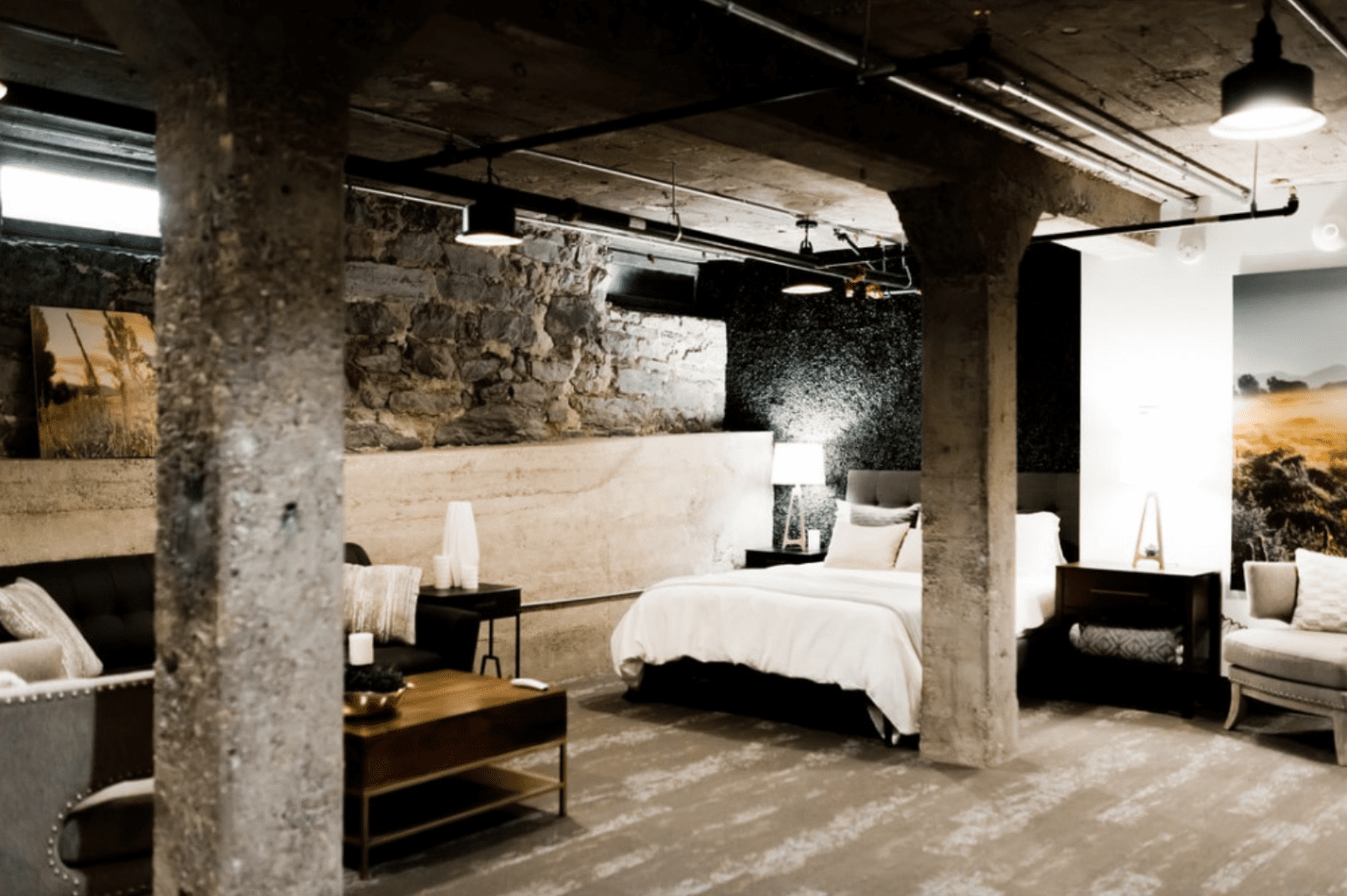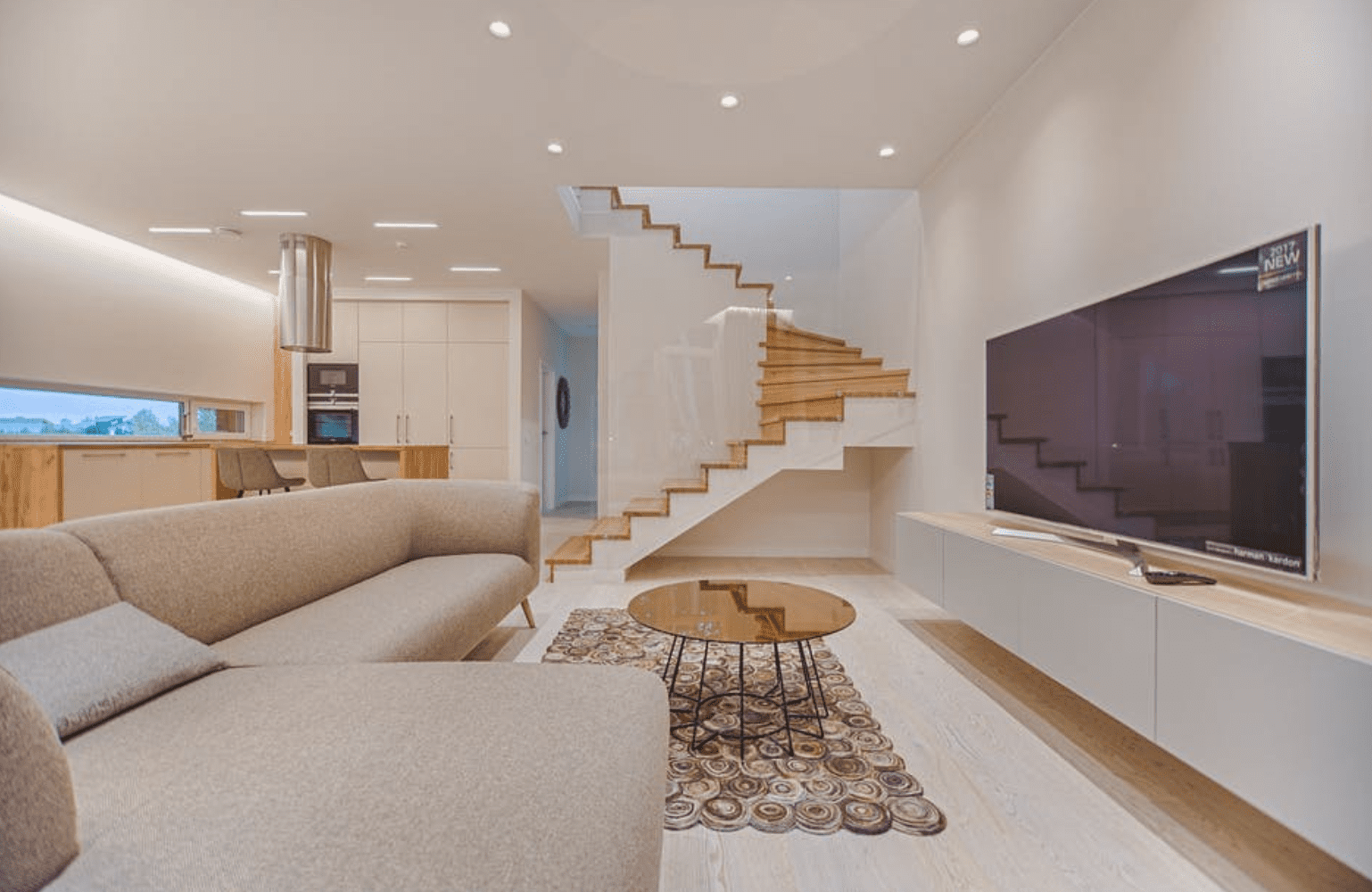Are you ready to dive into the world of basements and cellars? If you’re a little fuzzy on the differences between these two, you’re not alone.
Moving from California to Delaware has really mixed me up when it comes to telling the difference between basements and cellars. Back in Cali, we had this house with pretty much just a hole in the ground, and they called it a “California basement.” But here in Delaware, our basement is huge!
That’s why I’ve compiled this guide to explore the nether regions of your home. Let’s get started!
Basement: Definition
It’s helpful to start with the textbook definitions of the two before getting into further details and differences. So, a basement is basically a partially or entirely underground building level. They can be used for storage or even as a living space, home theater, gym, and more.
Basements could have windows, outdoor entrances, and stairs or ladders descending from the first floor of the house. These below-ground spaces are one type of home foundation, along with crawl spaces and slabs. They’re foundations because they quite literally support the house’s structure and serve as a stable base for the house.
Cellar: Definition
Now it’s time to put cellars under the microscope. To put it simply, a cellar is a room below ground level in a house. Like a basement, it could be entirely or partially below ground level. People often use cellars for storing food, wine, and other provisions. Usually, they’re cooler and more humid than the rest of the house.
Interestingly, the word “cellar” actually comes from the Old French word “cellier,” which means “storeroom.” Historically, cellars were used primarily for storing items like fruits, vegetables, meats, wine, beer, and other drinks. In fact, many old homes and buildings in Europe still have wine cellars that date back hundreds of years!
One of the defining characteristics of a cellar is its cool, moist environment. Because they’re located underground, cellars maintain a more stable temperature and humidity level.
Differences Between Basements and Cellars
Let’s hone in even further on these two distinct spaces. Below, I’ll compare basements and cellars in terms of their purposes, sizes, features, and more!
Purpose
Let’s start with their purpose. Basements are often used as additional living space, with rooms that can be converted into bedrooms, game rooms, or even home theaters. Cellars, on the other hand, are primarily used for storage, particularly of food and drink. Many homeowners choose to convert their cellars into wine cellars or “root cellars” for storing fruits, vegetables, and other produce.
Size
Size is another factor that sets basements and cellars apart. Basements are normally larger and more spacious, with higher ceilings and larger windows to let in that gorgeous natural light. Cellars, on the other hand, are often smaller and more cramped, with lower ceilings and smaller windows.
Features (Ceilings & Windows)
Speaking of ceilings and windows, let’s talk about those features for a moment. In basements, the ceilings are usually at least seven feet high, allowing for plenty of headroom. Windows are also larger and more numerous, providing natural light and ventilation. Cellars, on the other hand, often have lower ceilings and smaller, high-set windows. That way, the room stays cool and dark.
Living Space Capability
Living space capability is another difference between basements and cellars. While basements can be converted into additional living space, cellars are typically not designed for this purpose. They just don’t have the necessary amenities and features, like plumbing and electrical outlets, that make a comfy living space.
Entrance
Another key difference between basements and cellars is the entrance. Basements usually have direct entrances from the outside or from within the house. In contrast, cellars often have a separate entrance, like a hatch or trapdoor, outside the house.
Maintenance
Finally, let’s talk about maintenance. Basements require more maintenance than cellars. Why, you may ask? Well, they’re more likely to suffer from water damage and mold growth. Cellars, on the other hand, are cooler and drier, making them less likely to run into these issues.
Which One Is Better?
So, there you have it: the main differences between basements and cellars. But, which one is better? Well, that depends on your needs and preferences. If you’re looking for additional living space, a basement might be the way to go. But if you’re a wine fanatic or just need some extra storage space, a cellar might be the better choice.
In terms of these differences, it all comes down to personal preference. Whether you prefer the spaciousness of a basement or the cozy charm of a cellar, one thing’s for sure: both basements and cellars have their own unique appeal. But what if you’re more interested in understanding the value these two spaces can add to your home? If that’s you, keep reading to find out which is more valuable.
Do Basements or Cellars Have More Value?
Ah, the age-old question: which is better for home value, a basement or a cellar? Well, the answer isn’t exactly straightforward. Let’s explore the factors below.
On the one hand, basements are usually more valuable since you can convert them into additional living space. So, if you want to sell your home, having a finished basement can seriously increase its value.
On the other hand, cellars also add value to your home. This is especially true if the cellar’s designed for storing wine or other high-end items. A stylish wine cellar, for instance, can be a real selling point for buyers who appreciate the finer things in life.
Choosing the best one in terms of home value depends on a variety of factors like location, market demand, and buyer preferences. So, while a finished basement might be more valuable in some markets, a well-designed and chic cellar might be more appealing in others.
Conclusion
Next time you find yourself descending the stairs to your basement or cellar, take a moment to appreciate the unique quirks of your underground space. And if you’re feeling really adventurous, why not turn your basement or cellar into your own personal oasis? Whether you choose to use it as a home theater, a wine cellar, or just a place to store your extra stuff, your basement or cellar will surely provide plenty of space and opportunity for whatever you have in mind!
Related Posts:




